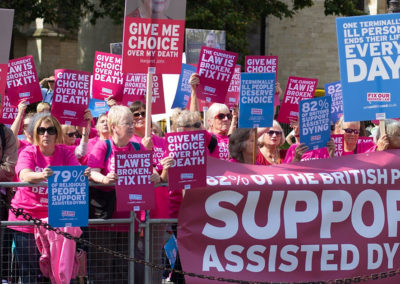A study has found that Canada is the world leading country in organ harvesting from people who end their lives by euthanasia.
According to the study, 136 people who were euthanised in Canada have donated their organs since 2019 to 2021. The figure far outweighs the other countries in the study that permit organ transplantation after euthanasia. In Belgium, from 2005 to 2021, there were 57 instances of organ donation following euthanasia and in the Netherlands, from 2012 to 2021, there were 86 instances of organ donation following assisted suicide.
In a much shorter period of time, Canada has been far more prolific in organ harvesting from citizens whom it has euthanised. Those people who are euthanised and have cancer cannot be organ donors due to the medication involved in their treatment.
Executive director of Ottawa-based Physicians for Life, Nicole Scheidl, reacting to this data, said “I was shocked … I also think that it really undermines the organ donation framework in this country.”
She said organ donation after euthanasia reminded her of the suspected organ harvesting after execution in China.
“I think people are concerned,” said Scheidl. “I know transplant teams would want to make sure that individuals who were euthanized were not coerced.”
One in five cite loneliness as a reason to want to die
In 2021, 10,064 lives were ended by assisted suicide or euthanasia, an increase of over 32% from the previous year, accounting for 3.3% of all deaths in Canada.
According to the latest report on Medical Assistance in Dying from Health Canada, 17.3% of people also cited “isolation or loneliness” as a reason for wanting to die. In 35.7% of cases, patients believed that they were a “burden on family, friends or caregivers”.
Statistics from the state of Oregon, which made assisted suicide legal in 1997, show that most end-of-life concerns are not medical. The Oregon Health Authority report for 2021 says that 54.2% of patients were concerned with being a “burden on family, friends/caregivers”. 92% of patients were concerned with being “[l]ess able to engage in activities making life enjoyable”. 93.3% were concerned with “losing autonomy” and 68.1% were concerned with “loss of dignity”. Of the total who have died since 1997, 27.5% have listed “inadequate pain control, or concern about it” as one of their end-of-life concerns.
Right To Life UK spokesperson Catherine Robinson said “Canada’s enthusiastic embrace of organ harvesting following euthanasia is not surprising but still deeply concerning. Offering organ donation after euthanasia clearly creates an incentive for people who want to end their lives in the sense that they could be led to believe that their death will do some good for someone else. It may not be the only concern, but it is undeniable that this will become a factor influencing the decision to be euthanised.”
“Sadly, the use of people’s organs after euthanasia, even with their consent, is a utilitarian approach to the human person, treating them not as someone to be valued for their own sake, but something to be used or recycled for the benefit of others. While organ donation is not intrinsically problematic, in this case it can create clear incentives for the patient to end their life and encourage coercion from others.”












